Faded and Blurred is a fantastic online magazine devoted to the art and craft of photography and the people who make photographs. Editor Jeffery Saddoris interviewed me for an ongoing series called Work:Life. The series focuses on creative professionals trying to balance creative, personal and business lives while pursuing their passion.
As fate would have it, Jeffery and I have a mutual friend in common. He went to high school with Ryan Beck, the commercial advertising photographer I worked for when I lived in Los Angeles. Another mutual friend, Patrick Shipstad was a former groom of mine. Six degrees of separation, right?
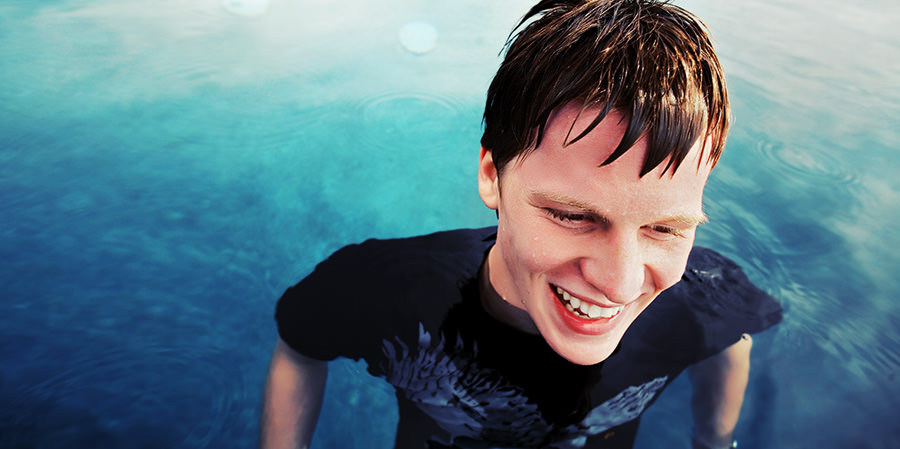
You have said that music was your first love. How did fate lead you to photography?
“I seldom end up where I wanted to go, but almost always end up where I need to be”. (Douglas Adams)
Photography has been a part of my life since grade school. My best friend had a darkroom in his basement and one of my first jobs out of high school was at a pro photo lab. Every musician has a day job. It’s kind of a running joke, as in “don’t quit your day job”. I worked during the day, practiced at night and played on weekends.
Music was everything to me. I poured my entire life into it. Our band had a great following. One of our songs was being played on the radio, there was talk about moving to Los Angeles, we were opening for well known local bands, playing great venues. But if you’ve ever spent a weekend watching VH1’s “Behind the Music”, you know the story. Personality conflicts, unchecked ego’s and drugs eventually split up the band. And that’s exactly what happened.
You never forget your first love, but it was time to face the music and make a drastic change. I realized I couldn’t continue putting so much time and energy into a career where my success was dependent on 4 other people who may not be as serious as me.
And one day, as I was watching endless rolls of prints come off the processor, I wondered how photographers created images like this. I knew what I could do with my camera and darkroom, but this was like magic to me. I decided if I could get the right training, I could have a career doing something I enjoyed and my success would no longer be dependent on anyone but myself.
So I researched photography schools and decided to get on the waiting list of a commercial advertising photography program at a community college in Seattle. It had a well-respected reputation with photographers and was known for being a tough program. Since it required purchasing a 4×5 camera and darkroom equipment, I knew I’d graduate with the experience and tools to earn an income.
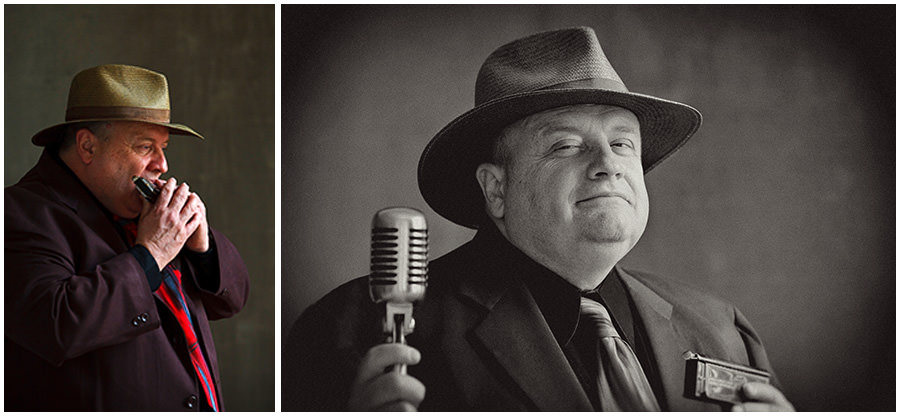
Does your background in music influence you at all as a photographer?
It’s amazing how many photographers I’ve met over the years who were musicians or heavily influenced by music. There is a quote that says after silence, music is the closest you’ll come to expressing the inexpressible.
Today, there is a wealth of information waiting to be explored. From video tutorials to online forums where you can share with the best photographers in the world. But all the information in the world won’t make you a musician or a photographer. You have to practice—put in the time building technique. It takes a lot of persistence and dedication. There are a lot of parallels between music and photography. Obviously, both are creative arts. They both require vision, a point of view, the ability to think abstractly and far too much gear. I thought I’d gotten away from that, but photography has just as much gear. And both industries have rock stars.
Aside from that, there is something intrinsic and primal about music. Listening to music while I’m shooting or working on post production puts me in a different mind set. It helps me focus, silencing the chatter in my head.
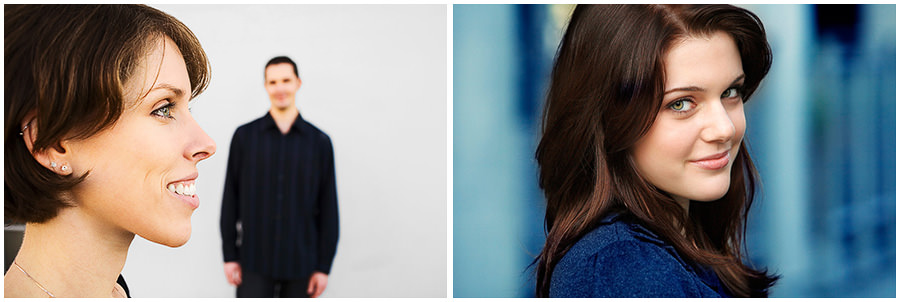
Beyond having a degree, how did you know when you were ready to “go pro”?
That’s a great question. I was instilled with a strong work ethic. It was important to me when I graduated to become an apprentice. An assistant photographer. So many assistants I’ve worked with in the past 5 years come to me with this sense of entitlement. I think that no matter how much you think you know, it’s important to take the time to see that knowledge executed in the real world. In an environment where you are under pressure to be consistently creative with no excuses or do overs.
I was an assistant for two years in the days of film and Polaroid. There was no “fake it till you make it”. You had to know the craft and technique of photography. Film didn’t afford you the luxury of learning as you shoot that digital does.
Once I was able to shoot consistently, in a variety of lighting conditions and develop that creative muscle memory, I felt confident enough to begin my career as a professional.
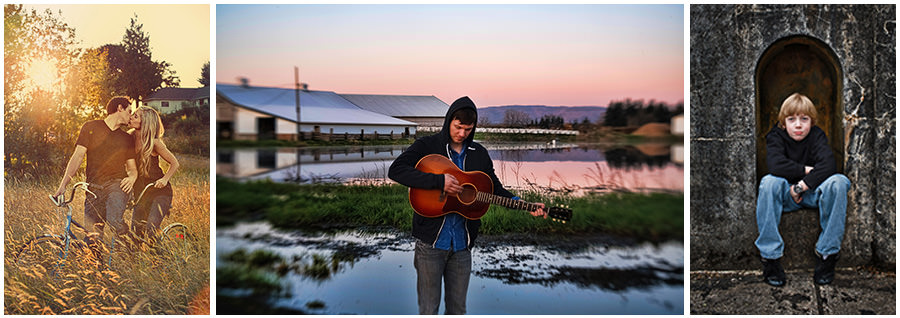
What’s the most important thing you have learned as a working photographer that you were never taught in school?
A week before I graduated, my professor set up an interview with the creative director of photography at Hallmark in Kansas City, Missouri. They were good friends and he was visiting Seattle and agreed to review my portfolio.
At the end of the review, he told me it was an impressive portfolio, but it lacked one thing. A point of view—in short, me. That hit me in the gut. I took a lot of pride in the work represented in my portfolio and graduated with honors from that program. But he was right and years later, I finally understood what he was telling me.
Developing a point of view that is authentic to you is the most important thing you’ll ever do. Follow what inspires you and don’t look back or second guess yourself. Be true to yourself and don’t copy what everyone else is doing.
There is only so much you can learn in school, the rest comes from experience in the real world. How to interact with people and get them comfortable while mentally figuring out your lighting, deciding what lens to use, dialing in your exposure, watching and learning about your subject. How to think on your feet under pressure, shooting consistently and always delivering for your client. Technically, anyone can be a photographer, but consistency and a point of view are what make you a professional. Then there’s the whole business side of things. No one prepared me for all the work of running a business. I discovered that much of my business has nothing to do with photography.
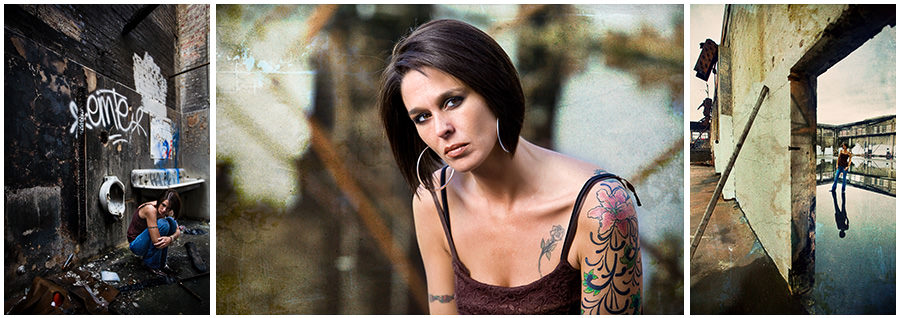
On the other side of that, do you feel that formally studying photography is necessary to be a good photographer?
It was necessary for me. Learn the rules to break the rules. Photography is art and science. Formal training taught me the science and exposed me to the history of photography. The photographers voice in their images—their point of view is the art.
Learning the craft eliminated the barrier to expressing my vision. Being able to create without thinking about the technique of photography. The technique became an extension of my creative process.
It taught me how to see light. How exposure and development work hand in hand. It gave me a visual aesthetic that’s still prevalent in my work. Deep, rich blacks with detail and crisp, vivid whites with detail. A formal education won’t make you a great photographer, but it sets you on a path to realizing your vision.
Many photographers talk about the importance of personal projects. Is personal work important to you and if so, how does your personal work affect or inform your professional work?
Keith Carter said “perfection will paralyze you”. My insecurity and fear of being anything less than perfect paralyzed me. Personal projects are fundamental in developing a point of view. You are shooting for yourself, without judgement. No one may ever see those images, so there is a freedom to fail without being judged. Out of that comes some wonderful revelations and insights.
This freedom of creative expression definitely filters into your professional work. It’s inspiring, you rekindle passion and that’s contagious. People want to work with you.
A good example of this is the wave of iPhone apps for creating retro film looks. Images with all the imperfections and random mistakes that were a part of shooting film. There’s no pressure or expectations because it’s an iPhone image. There’s an excuse if it sucks. You can blame it on the iPhone. But what’s happened is you’ve removed yourself from the outcome. Creative freedom. Practice that enough and it will find it’s way into your professional work. That’s a good thing.
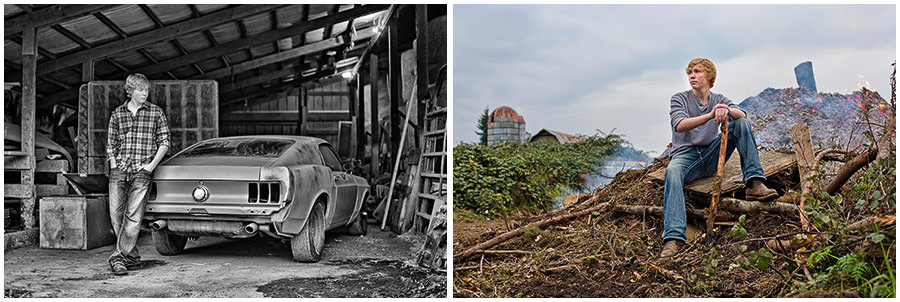
Post processing is a part of being a photographer, yet requires a very different set of skills. Have you ever considered outsourcing your post production to allow yourself to focus more on shooting?
The short answer is yes. Historically, some of the greatest photographers worked with one darkroom technician to craft and bring their vision to life. On the other hand, many of the worlds greatest photographers have done their own darkroom work.
To me, the answer lies in the type of photography that you do. There are photographers who merely provide a photographic service and others that create art. If you have great exposures, commercial oriented photography such as school portraits, advertising, weddings, your post production is minimal. 90% of my wedding images are simple post production, but time consuming because of the volume of images. When the line between service and art is blurred, it’s more personal and therefore, more difficult to outsource.
Commercial work can involve a lot of specialized and complicated post production, but it’s a service that’s easily outsourced, if you can afford it. When your work is more artistic and personal in nature, it becomes harder to outsource. You may have a certain technique or post production process that is a part of the entire vision. Because it’s personal, it requires that you do the work yourself. It’s a hands on process that can’t be outsourced. That’s what makes it artistic.
I’m fortunate to have a highly developed set of Photoshop skills. It’s taken many years to learn. I’m very efficient in my post production, but also very critical. I tried outsourcing my wedding work a few years ago and came away very disappointed with the results. It was also very expensive. People hired me because of the way my work looked and outsourcing didn’t work. They could see the difference even if they didn’t know why.
If you don’t have the Photoshop or Lightroom skills and find post production is destroying your life, then it makes perfect sense to outsource. If you find the right person, it can actually elevate your work and give you the time to focus on what you do best. Being behind the camera.
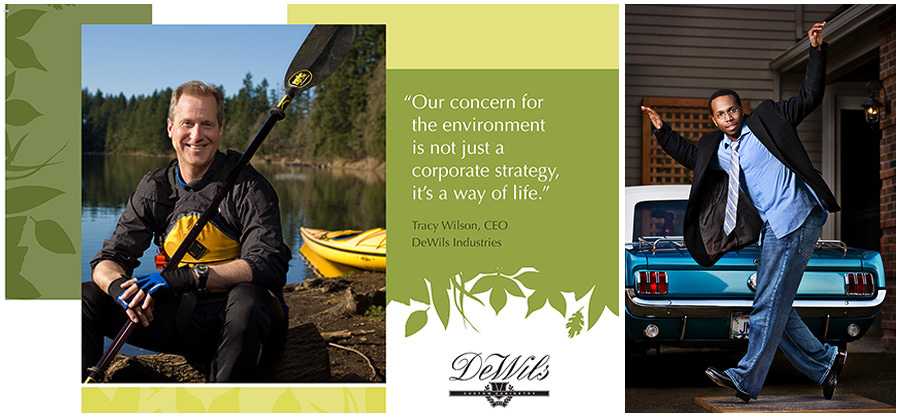
What marketing tools do you use for your business and what do you find to be most effective?
Over the years, I’ve tried everything. From Yellow Pages and direct mail to coupons, flyers and traditional print advertising. Internet advertising was great at first, but now it’s just more noise.
Word-of-mouth has been and always will be the best marketing tool. Take care of your clients and offer them unexpected customer service along with creative, unique images and they will go out of their way to tell their friends about you. Facebook and Twitter are great word-of-mouth tools and allow you to keep a public conversation going with your clients and potential clients. It’s simply the most effective marketing tool for me.
What do you do to stand out from the every increasing number of photographic voices struggling to be heard?
It’s important to surround yourself with people who understand and support your vision. And I don’t mean surrounding yourself with people who are always telling you how great you are. People who will tell you straight up what they think about your work. It’s important that these people understand the entire process because if they don’t it may sabotage your creative process.
Standing out from the herd has become increasingly difficult. Never has it been so easy to be a photographer and have no clue what you’re doing technically. On one hand it allows more people to creatively express themselves, while on the other hand, it muddies the water. Everything starts to look the same.
Be authentic. Follow your own path. Be true to that still, quiet voice that sometimes struggles to be heard. Don’t concern yourself with what everyone else is doing. If you do what everyone else is doing, you’re competing. If you want to stand out, be yourself. That’s been my mantra for the past decade.
Spending the time on social networking seems to have become a necessary evil in building a business. What does social networking mean to you and how does it affect your business?
Social networking is a way for me to stay in touch with my clients and professional colleagues. With clients, it’s about building a relationship. An opportunity to keep reinforcing why they hired me in the first place and why they should recommend me to their friends. It’s not their job to remember me. It’s my job to make sure they never forget me.
With colleagues, it helps me stay connected and be inspired. From tips and techniques to simply blowing off steam. It’s a chance to be myself. It’s my voice on the internet. If people like what I have to say, I gain an audience and engage in conversations that I’d never been able to a decade ago.
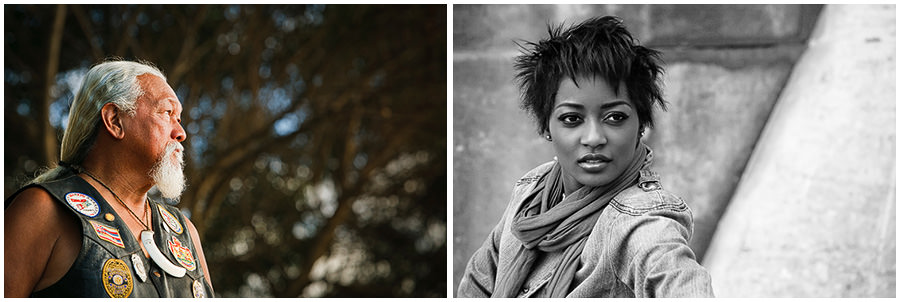
What is the biggest challenge in being your own boss?
At first, it was simply developing the habit of going to work, even though I worked from home. Establishing a routine of doing business. Developing creative habits, finding the time to nurture the artist and balance that with having to wear so many hats.
Later, I found the biggest challenge was learning to listen. Not only with my clients, but colleagues. I found this out first hand when I started a collaborative blog project three years ago with 19 other photographers. Everyone was used to being their own boss and not working as a team. Think about it. You make decisions that you feel are the best solution to your problem. From your camera gear to how you run your business. You don’t have to listen to anyone. You’re the boss.
When you get 20 self-employed photographers together and try to get them to agree on anything, you quickly find out that it will never happen. The biggest challenge we all face being our own boss is remaining objective enough to hear something anyone may say that is a better idea than we had ourselves.
Do you discipline yourself to “go off the grid” at a certain hour to spend time with friends or family?
Without question, absolutely yes. It’s easy to stay connected these days. There’s always the temptation to check email one last time before you go to bed. To work while you’re on vacation. And we’ve all seen people who can’t engage in conversation without constantly checking their phones.
It’s important to get off the grid. Being on the grid is addictive and after a certain point, non-productive. You’re a better person when you draw those boundaries for yourself and your friends and family. And it’s more professional, less personal.
There is the misconception that when you are self-employed and work out of your home that you should always be available to your clients and accessible by email. I make it very clear that I’m not available after certain times of the day and lately have been setting aside Sundays as personal time. What I’ve found is nearly everyone understands and respects this. In the end, I’d much rather live my life with friends and family than spend it on the grid.
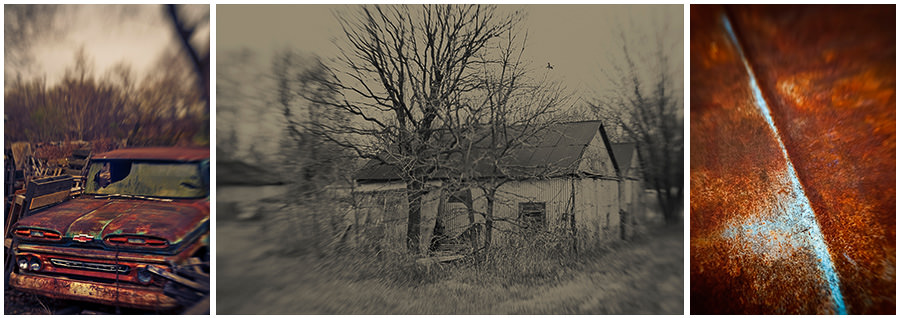
What have you learned about achieving balance in your life between personal life and the demands of being a photographer?
I realized and accepted the fact that I’ll never get it all done. I try to leverage my time and resources better. Work smarter, not harder. Took me 20 years to figure that out. I can’t tell you what to do, but I can tell you what not to do and why.
I’ve had the privilege of working with some of the best photographers in the world. It would seem that in order to be successful, you have to live, eat and breathe photography. I’ve seen incredible talent burn out and fade away. You have to find out for yourself what’s most important in your life.
Finding that balance is not easy and truth be told, I still struggle with it daily. Just ask my wife and kids or any of my friends. We all keep pushing ourselves a little harder to try and get on top of things or to get ahead. It’s a never-ending treadmill. But that’s the journey of life to me. Figuring these things out. In the end, our life is the direct result of a lifetime of choices. Choose wisely.
Finish this sentence: “If I couldn’t be a photographer…”
A writer in need of a very good editor. That’s been the curse of life. So many things I’d love to do if I had the time. I’ve dreamed of being a musician, a pilot, a chef and a fine art metal sculptor.
Thanks again to Jeffery Saddoris for the opportunity to be featured on Faded and Blurred. The Work:Life series is an important body of work that I hope will continue to expand and grow. The life of a creative professional is demanding, difficult and ever-changing. It’s often a life of solitude and isolation. Being able to connect to other creatives through this series of inspirational articles is a lifeline.





This Post Has 5 Comments
Congrats Randy – An excellent article! It’s nice to fill in some of the blanks about your journey.
I must say that this is one of the best and most concise articles I have read about being a seasoned photographer in today’s world. I could not agree with you more on so many points you shared here.
There certainly is no substitute for practice and perseverance, and that surely shows in the depth of your work. Every aspiring photographer (artist) needs to read this.
Thanks Gary! I always appreciate your candor and point of view. And your continued support. It’s a lot to read through, I know, but thank you for taking the time. Jeffery Saddoris really pushed me to do this and I’m glad he did. It was good to mentally sort through this in my head and push it out into the world.
Hey there,
I just found you on the Digital Wedding Forum website so I thought I’d swing by and take a look at your work. I really enjoyed your photos and I love your editing style and feel. I’m a wedding photographer as well (My company is called Mykkah Photography around Washington D.C./Central Virginia) and I can totally appreciate the efforts behind the photos…Keep up the great work!
Best regards,
-Micah
Congratulations on getting published and thank you for sharing the great marketing tips.
Thanks Micah! I appreciate you taking the time to visit my site. Your photos are beautiful. I checked it out!
Harry… always nice to see you around. Thanks for your support. I’m glad you enjoyed the article.
Comments are closed.